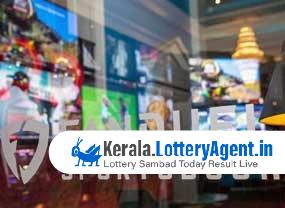
In a surprising twist for the District of Columbia’s gambling landscape, the DC Office of Lottery and Gaming (OLG) disclosed in March that Intralot, the underperforming operator of the GamBetDC platform, is planning to dismantle the platform and subcontract its services to FanDuel. This revelation caught the DC Council off-guard but has been met with enthusiasm by local bettors tired of GamBetDC’s longstanding issues.
Launched in May 2020, GamBetDC has been riddled with usability flaws and other problems, significantly underachieving over its four-year tenure as the city’s sole mobile betting platform. Despite its monopoly, the platform generated just $4.3 million in tax revenue for The District during this period.
Currently, OLG operators are taxed at a hefty 40%. However, under a proposed law amendment, operators in an open market would see their tax obligation slashed to 20%. The potential shift to an open market has released a wave of anticipation similar to the boost FanDuel provided when its first 30 days of operation yielded $1.9 million in tax revenue for the city.
A letter dated June 5th, right before the DC Council’s initial vote on the fiscal year 2025 budget—which incorporates a provision to open the wagering market—outlined FanDuel’s stance clearly. Should the budget pass, DC could be on the verge of embracing commercial competition, an avenue FanDuel has already started to carve through its existing partnership with Major League Soccer’s DC United. The company’s retail sportsbook at Audi Field, the United’s home ground, serves as a testament to their readiness for a broader market.
Current legislation allows sports betting operators to partner with professional sports teams for in-person betting and geofenced digital betting. Operators like BetMGM at Nationals Park and Caesars Sportsbook at Capital One Arena already maintain brick-and-mortar locations and offer constrained mobile betting. Under the amended law, companies partnered with professional venues, including FanDuel at Audi Field, could expand their digital platforms’ reach.
New entrants to the market can come in through partnership deals or a new “Type C” license, both subject to a 20% tax rate.
. FanDuel is eyeing this reduced tax environment keenly. Presently, the company pays an elevated rate for its unique operational rights and has already contributed $5 million for its first fiscal year, with a contractual obligation to pay $10 million annually moving forward. Additionally, FanDuel bears all “operational, marketing, and advertising” costs—a significant departure from Intralot, which previously passed these fees onto the OLG.
Though Intralot will technically remain the lottery’s sports betting operator, its existing contract is set to expire next month. The company may continue to run the state’s sports betting operations but could subcontract digital offerings to other operators in the future.
As FanDuel begins to replace or revamp GamBetDC kiosks at lottery partner locations, bettors are provided with the option to place wagers either at these kiosks or via their mobile devices.
In a letter obtained by iGB, FanDuel’s stance is laid out comprehensively. “Should Subtitle R be enacted, FanDuel will transition its operations under its Class A license in alignment with the new regime, consistent with its pre-existing contractual relationship, and invoke its termination right under the subcontract,” stated Genetski. “As a result, FanDuel (i) will no longer pay 40% of GGR to OLG, (ii) will instead pay a license fee and a 20% tax on sportsbook revenues, and (iii) will cease supporting retail kiosks at DC small businesses.”
Should the DC Council favor opening the market to increased competition, FanDuel’s strategic decision to part ways with OLG makes sound business sense but could leave the lottery without a robust digital betting platform. Established commercial operators are likely to view the high tax rate and associated fees as deterrents to any future business with the lottery.
During a recent hearing, OLG Chief Frank Suarez acknowledged this possibility, suggesting that the lottery might have to revive GamBetDC or face the possibility of having no wagering operator or an interim period until Intralot secures a new subcontractor. The fiscal year 2025 budget wasn’t on the June 18th DC Council Committee of the Whole agenda, with the next voting opportunity being a legislative meeting on June 25th. Should the budget receive approval, the changes would come into effect by mid-July.
The DC Council’s decision on this matter will not only influence the future of sports betting in the nation’s capital but also set a precedent for how other jurisdictions might manage their gambling ecosystems in the era of rapid digital transformation. For now, all eyes remain on the council as the clock ticks towards a pivotal vote.












